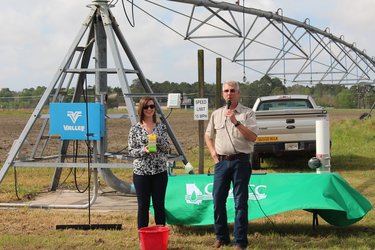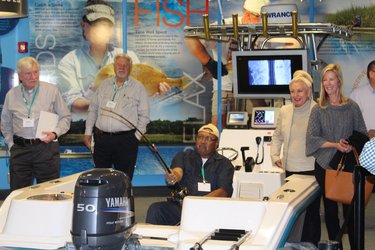
| May 2016, Vol. 10, No. 5 | Past issues | Subscribe | Printer Friendly | Advertise | eMagazine Archives |
Justice and Mental Health Collaboration Program
Competitive Grant Announcement The U.S. Department of Justice, Office of Justice Programs is seeking applications for funding for the Justice and Mental Health Collaboration Program. This program furthers the Department’s mission by increasing public safety through innovative cross-system collaboration for individuals with mental illness who come into contact with the criminal justice system. The department is seeking applications that demonstrate a collaborative project between criminal justice and mental health partners from eligible applicants to plan, implement, or expand a justice and mental health collaboration program. Any state or local government entity is eligible to apply for the grant. Applicants must register with Grants.gov prior to submitting an application. All applications are due to be submitted and in receipt of a successful validation message in Grants.gov by 11:59 p.m. eastern time on May 17, 2016. For more information about the grant, including details about how much can be awarded and the allowable uses of awarded funds, please review the grant information packet for more details. Apply for the Healthiest Cities and Counties Challenge
Counties and cities involved in the Challenge will work to improve residents' health by incorporating health considerations into policies and practices, developing replicable strategies that achieve measurable results and creating sustainability by leveraging prize money from the Challenge with long-term funding sources.
All counties and cities are eligible to submit a proposal for the Challenge.* There are two tiers of participants based upon population size.
The Healthiest Cities & Counties Challenge is generously supported by the Aetna Foundation. The National Association of Counties (NACo) is a partner on the Challenge along with the American Public Health Association and CEOs for Cities.
The deadline to submit a proposal is May 31, 2016 at 5 p.m. EDT. For more information, visit www.healthiestcities.org. Direct questions to Debbie Nadzam, Healthiest Cities & Counties Challenge Director, at 216.523.7348 or hccc@ceosforcities.org. ACCG hosted a Water Tour for County Commissioners and County staff March 30-31, 2016. This was the first ACCG Water Tour in over 10 years. Over 40 county commissioners and staff attended along with members of ACCG staff, representatives from UGA's Extension program and the Georgia Farm Bureau, guest speakers and lecturers from businesses and organizations across Georgia, and even a state legislator. Participants traveled together to the Go Fish Georgia Center in Houston County and learned about the importance of the fishing industry in the state from Scott Robinson with the Georgia Department of Natural Resources. Fishing alone has a more than $1 billion economic impact in Georgia. After departing and heading to Colquitt County, guests gave presentations on the bus to pass the time in an educational way. Participants heard from ACCG Executive Director Ross King, discussing financing available from the Georgia Environmental Finance Authority, and Associate Legislative Director Todd Edwards, who covered relevant topics in the legislature this session. Shana Jones, Program Manager of the Planning and Environmental Services Unit at the Carl Vinson Institute of Government, discussed the Clean Water Act and Watershed Planning. Dr. Gary L. Hawkins also spoke to the crowd as the Water Resource Management and Policy Specialist with the College of Agricultural and Environmental Sciences at the University of Georgia. Participants enjoyed dinner in Colquitt County and attended the Sunbelt Ag Expo the next morning. In the farming fields, they listened to seminars and presentations on farmers’ efforts to conserve water. The long list of speakers discussed water policies, irrigation systems, the effectiveness of soil moisture meters, and the importance of public-private partnerships to control weeds and pests in crops. The presentations were followed by a luncheon, and the commissioners received a container of farm-fresh strawberries courtesy of the Georgia Agribusiness Council. Overall, these elected officials were exposed to a world many of them have never had personal experience with, and they can use that knowledge in their decision-making process going forward. Water conservation is important in Georgia, from the fishing industry to the state’s agriculture-based economy, and firsthand experience is the best method of education for these commissioners and chairpersons.

 GCIP Spotlight for May: Georgia Tech student interns with the Cobb County Community Development Agency For more information on the GCIP, please visit the ACCG Civic Affairs Foundation website at http://www.civicaffairs.org
|
| ACCG, Georgia's County Association 191 Peachtree Street NE, Suite 700 Atlanta, GA 30303 phone: 404-522-5022 | fax: 404-525-2477 | ACCG.org |

